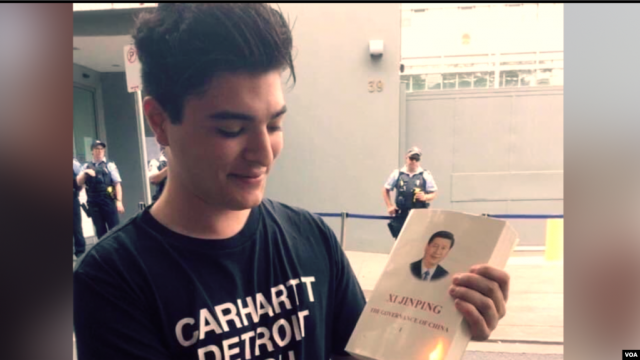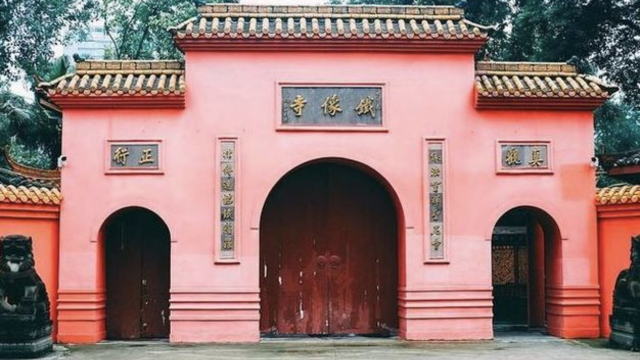
A 20-year-old Australian student became a thorn in the side of China. Actions taken against him exposed to the world how the CCP tries to control universities.
by Massimo Introvigne
Drew Pavlou may well be the most famous undergraduate student in the world. After he protested the CCP’s human rights violations in Hong Kong, Tibet, and Xinjiang, University of Queensland moved to expel him. Coming in the middle of the COVID-19 pandemic, and international reaction against Chinese infiltrations in the West, his case became a cause célèbre, and was covered inter alia by The Washington Post and Foreign Policy.
Not for the first time, the CCP’s bullying strategy backfired. Brisbane-based University of Queensland, the fifth largest in Australia and one reputed for academic excellence, is also under heavy criticism. The whole incident is lifting the veil on how the CCP tries to control universities internationally, inter alia through the Confucius Institutes, on-campus centers teaching Chinese language and culture that have been widely exposed as propaganda and espionage outlets. Now, Drew Pavlou reveals to Bitter Winter some previously unknown details of what really happened.
Drew, you are a 20-year-old undergraduate student at University of Queensland the CCP has decided to publicly attack through the Global Times and other propaganda outlets. How did this strange confrontation between a global superpower and a young student in Brisbane started?
It was in July 2019. I was never involved in public protests or demonstrations, but I read a lot about Hong Kong, and from where I went on to read about what was happening to the Tibetans and the Uyghurs. I also realized that these subjects were taboos in my University because of its ties with China. So, I organized a small demonstration. In the beginning, we were 15 students. By the end of the day, the number had grown to 60.
And you were beaten by pro-CCP thugs, right?
Yes. We were attacked and some students were slammed to the ground and beaten. There were some 300 pro-CCP activists in the beginning, some 500 at the end of the day. So, we were outnumbered ten to one. Although there are Chinese students at University of Queensland ready to defend the CCP, the police told us that most of the counter-protesters, and certainly the violent ones who were wearing masks and sunglasses, were not students. It was an organized attack, with a small group of ringleaders clearly telling the others what they should do. It backfired, because what had started as a small local protest ended up being covered by The New York Times.
Did University of Queensland express solidarity with you after the attack?
On the contrary, they started working against me quietly and told me the anti-CCP protests should not happen again. We had scheduled a second protest for July 31, 2019 at 12 noon. “Coincidentally,” I was called for a disciplinary hearing on an unrelated matter on July 31, 2019, at 12 noon.
Unrelated matters, yes. University of Queensland claims you misbehaved on campus on matters not related to China…
Obviously, after the demonstration they started keeping me under surveillance and preparing a file against me. I was accused of shoplifting because I took a pen in the university store, wrote something with it, and put it back on the shelves. I was also accused of using inappropriate language in a heated Internet debate about the suicide of a student I knew. Charles Sturt University’s Professor Clive Hamilton, well-known in Australia, looked into the charges and found them ranging from the trivial to the absurd. It is clear that the University went against me for my anti-CCP activism.
Why would a leading university do this?
This is the crux of the matter. University of Queensland has close ties with China and the CCP. It may well-be the most CCP-friendly English-language university in the world. It hosts a Confucius Institute, which is very influential in shaping how China is discussed there. The University’s vice-chancellor, Professor Peter Høj, served until 2018 as a senior consultant to the Hanban, the Chinese government’s organization in charge of Confucius Institutes worldwide, and received an award by then China’s vice-premier for this. The Chinese consul general in Brisbane, Xu Jie, is a honorary professor at University of Queensland, although after criticism, which was also connected with my case, erupted, it was announced that his appointment will not be renewed. Perhaps more importantly, the University admitted that “fees from Chinese students account for approximately 20% of University of Queensland’s revenue.” Ultimately, it is largely about money.
How did you react to censorship?
I sued consul-professor Xu Jie as responsible for the assault. I decided to run for the position of students’ representative in the University’s Senate. The powers that be supported another candidate, who made the fact that my election would damage relationships with China the focus of his campaign. I also received death threats and was once physically assaulted during the campaign. Once again, the aggressive tactics backfired, and I was elected. After the election, threats against me continued. I posted online a satire of the Confucius Institute, and the University hired a top law firm, Clayton Utz, which threatened to sue me for a huge amount of dollars if I did not take the post out immediately. The first session of the Senate was last February. Everybody expected it would focus on COVID-19, and how the University would protect students against it. Instead, the session was largely devoted to a (failed) attempt by the University authorities to unseat me and declare my election invalid.
Did the pandemic somewhat defuse the tensions?
Actually, it made them worse. I joined the protest against the delays of the University in stopping the campus’ activities, and posted notes at the doors of Vice-Chancellor Høj and the Confucius Institute. I was promptly accused of anti-Chinese racism, while in fact I criticize the Confucius Institute as representative of the CCP, not of the Chinese people, for which I have sympathy and respect. During the lockdown, and just days before my case against consul Xu Jie was scheduled in court, I received a 186-page document calling for my expulsion and summoning me to a hearing for May 20. Originally, the University claimed I had no right to be represented by a lawyer there. After one of the most famous lawyers in Australia, Tony Morris, offered to represent me for free, and made some noise, it now seems he will be allowed to attend the hearing.
What will happen next?
The verdict will be announced in June. I am not optimistic about the outcome, because the University’s disciplinary system is dominated by the same people who attacked me in the first place. However, if I am expelled, which would be catastrophic for my life and career, my lawyer is fully determined to take the case to civil courts, up to the Supreme Court of Queensland if needed. And I am confident that real, independent judges will render real justice.
China has suspended import from four large Australian meat suppliers, in retaliation of Australia’s call for an independent investigation on the origins of the virus. Will this influence your case?
I believe there is a civil war going on among the Australian elite. Some would like to appease China for economic reasons. Others realize we cannot keep being bullied by China through economic blackmail. My case is a battle in this war, whose outcome is very much uncertain.
Source: Bitter Winter












